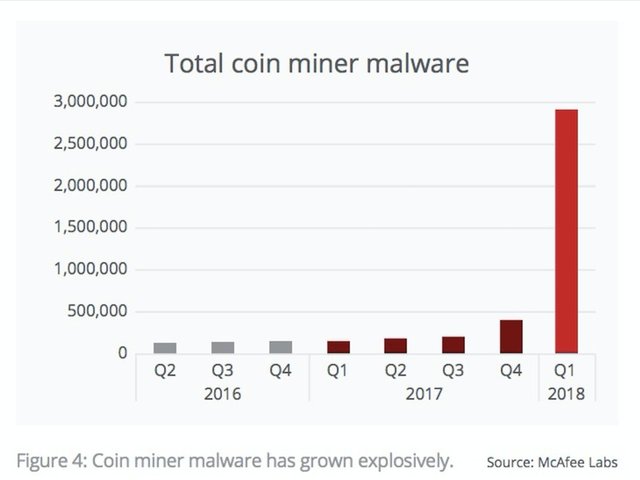One Million Computers Fall Victim To Chinese Cryptojacking Scheme

China – Legal Daily, a Chinese media news source, just recently reported that twenty Chinese suspects have actually been jailed for obvious ties to an enormous cryptojacking project. Nine of the suspects are presently under the careful eye of regional authorities, while eleven are on bail.
The news source reported that over one million computers were contaminated with mining ‘ bugs ’ in this twenty-person operation.
These computers had actually apparently mined over 15 million yuan ($ 2.25Million U.S.) worth of cryptocurrencies throughout this “two-year” unlawful operation. According to Legal Daily, the $2.25 million in cryptocurrencies consisted of Decred,Siacoin, and Digibyte, which are all computer system minable through user friendly software application.
An examination into this group was set off by a January cybersecurity report from Tencent ’ s security arm, keeping in mind that a horse ’ infection had actually been discovered in a computer game cheat software application.
Upon more evaluation the Tencent security group saw that the infection had a mining function integrated, permitting the enemy to take control of an afflicted device ’ s computational power.
The report even more kept in mind that the implanted mining software application would just run when CPU usage of an impacted computer system is less than 50%, making sure users wear ’ t see any significant efficiency destruction.
After a cops examination, authorities concluded that the scheme had ties to Dalian Shengping Network Technology, who might have been accountable for establishing the cryptojacking software application.
In an associated rip-off, Yang Moubao, who operated at the abovementioned company, apparently cloned a Baidu- owned leading video streaming platform and offered deceptive memberships at web coffee shops, acquiring over 200,000 yuan ($30,000 UNITED STATE).
Yang admitted that he was likewise accountable for dispersing totally free downloadable plug-ins that he dispersed online to take control of other computers
This info was exposed after he was jailed at his house on March the 8th.
In all, Yang and his accomplices at Dailan Shengping Network Technology are reported to have actually marketed totally free downloads for approximately 3.89 million private computers however just utilized one million for mining cryptocurrencies.
It is uncertain exactly what waits for the twenty suspects, however authorities made it clear that they have the circumstance under control.
GrowingCryptojacking Issue
Cryptojacking, the act of taking computer system resources to mine cryptocurrencies, has actually ended up being a significantly obvious issue in the cryptocurrency neighborhood.
According to a report from cybersecurity company McAfee, 2018 Q1 saw cryptojacking cases escalate, increasing by over 629% alone in simply 3 months.
InMarch, Troy Mursch recognized almost 50,000 sites that had actually been injected with cryptojacking software application. Many of these sites had backdoors that might be made use of to wrongly inject scripts into the website, making site visitors prone to background mining procedures.
However, this has actually not been just restricted to desktops and laptop computers, as mobile gadgets have actually experienced cryptojacking cases too. Both Google and Apple have actually needed to get rid of contaminated applications from their particular app shops after suspicious applications acquired countless dollars worth of cryptocurrencies.
JeromeSegura, a security scientist with Malwarebytes provided a remark comparing 2 popular cryptocurrency problems, stating:
Ransomware is generally like pointing a weapon at you and stating, pay up or you ’ re not getting your files back, ’ versus cryptojacking you may not even understand about it, it ’ s simply going to quietly take your electrical power.He later on included that cryptojacking is going to continue to be the favored activity that cybercriminals will wish to get, as long of the rate of cryptocurrencies remains high.
TitleImage Courtesy of Christoph Scholz
